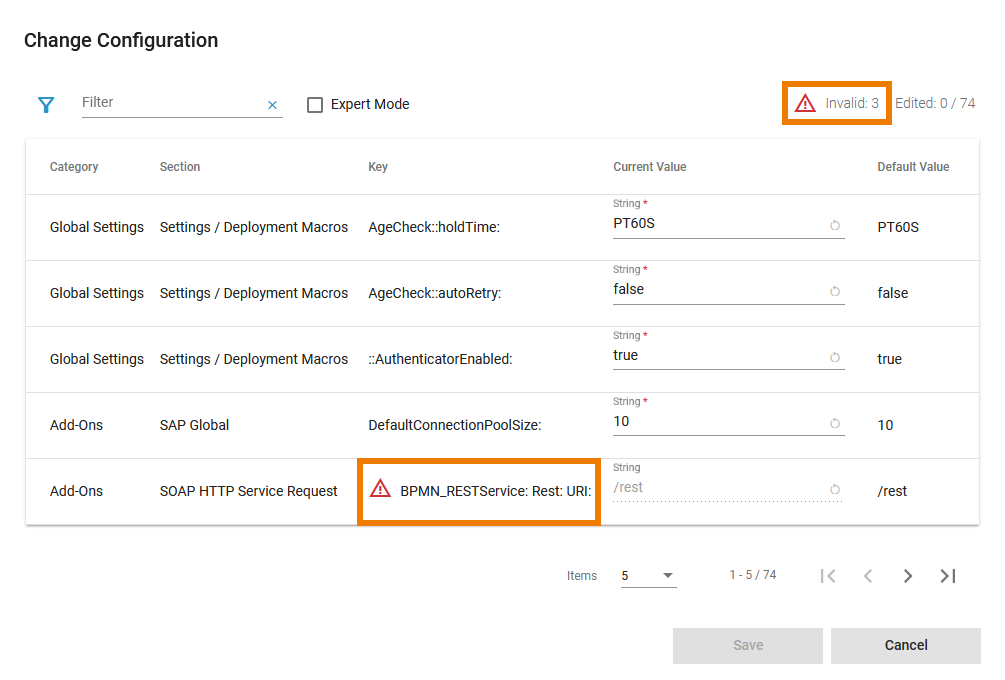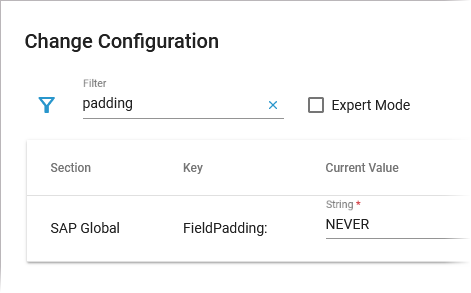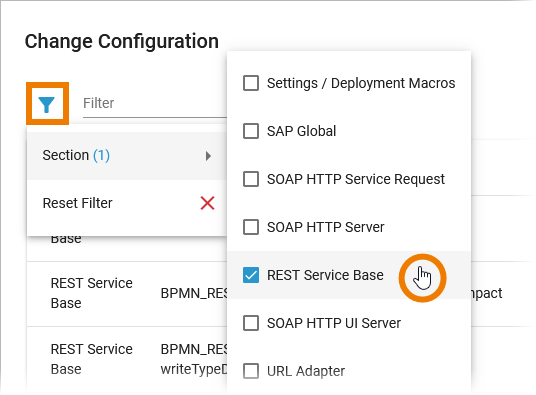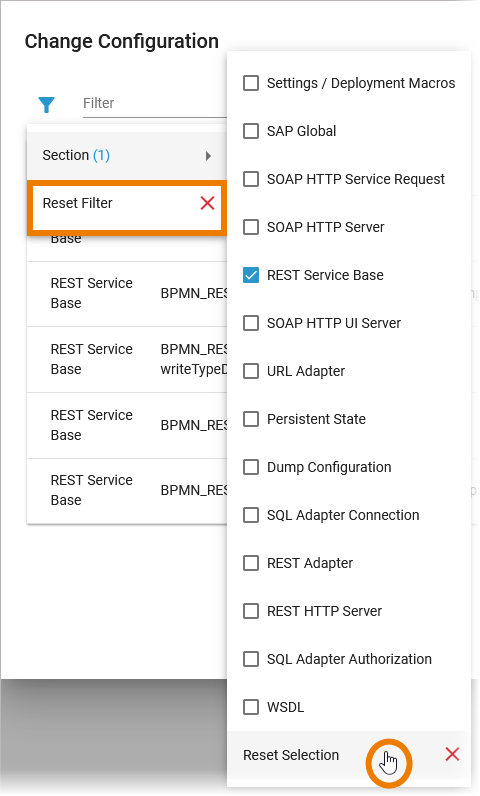| |
| |
| |
| You can change the Current Value of a service setting. The Default Value is displayed next to the current value. Click Save after you have completed your changed. |
| |
| |
| |
|
xUML Service Settings
Global Settings
| Settings Group | Setting | Description | Allowed Values | |
|---|---|---|---|---|
| Settings / Deployment Macros | Service Composite | |||
| getCompositeCategory | Value returned by Action Language macro getCompositeCategory(). Initial value of this setting is the category specified in the service details (see Managing the Service Details). | any string | ||
| getCompositeName | Value returned by Action Language macro getCompositeName(). Initial value of this setting is the service name. | any string | ||
| getCompositeVersion | Value returned by Action Language macro getCompositeVersion(). Initial value of this setting is the service version in the service details (see Managing the Service Details). | a version string | ||
PAS Platform | ||||
| AuthenticatorEnabled | Specify whether users are allowed to identify themselves using an x-pas-user header instead of a bearer token.
| true | Allow using an x-pas-header or a bearer token for authentication (default). | |
| false | Authentication only by bearer token. | |||
| AuthService::minimalAccessTokenLifeSpan | Define when a refresh token should be triggered. Default is 30 (if the token last less than 30 seconds it will be refreshed before it is used).
| any integer | ||
| KeycloakInstance::clientId | Specify the clientId to use when authenticating the service. Default is keycloak-clientId.
| any string | ||
| KeycloakInstance::clientSecret | Specify the clientSecret associated to the clientId. Default is keycloak-clientSecret.
| any string | ||
| KeycloakAlias:Location:host | Specify the hostname (domain) of the Keycloak SSO system. Default is keycloak-host. | any string | ||
| KeycloakAlias:Location:basePath | Specify the subpath of the Keycloak system. Default is keycloak-basePath. | any string | ||
| KeycloakAlias:Location:port | Specify the port of the Keycloak system. Default cannot be changed. | 8080 | ||
| KeycloakAlias:Location:protocol | Specify the protocol of the Keycloak system. Default cannot be changed. | http | ||
| PasSecurityService::allowAnonymous | Specify whether anonymous users (no PAS users) should be allowed to send requests to the PAS BPMN service. In contrast to anonymous users, PAS users are identified by a bearer token or x-pas-user header). If this setting is set to false, requests of unauthenticated users will return HTTP error 401.
| true | Allow anonymous access (default). | |
| false | Access for identified users only. | |||
Service | ||||
| <service settings> | In your Designer service, you can define name-value pairs using the setting macro in an implementation. These values can be modified here. | |||
Add-on Settings
SQL Adapter Connection Settings
SQL Adapter Authorization Settings
Other Add-on Settings
Expert Mode
Use the checkbox Expert Mode to display further options:
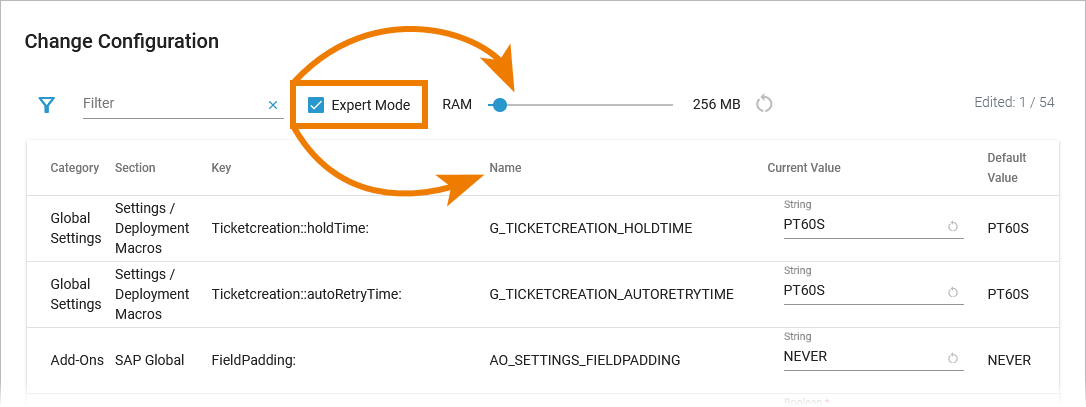
| Option | Description |
|---|---|
| RAM | Use the slider to increase or decrease the RAM of a service. This option allows you to avoid that one service can comsume all resources. Default is 256 MB, the RAM maximum is 4 GB. You can change the RAM in steps of 64 MB. |
| Name | If you want to set xUML service settings for containerized services from the outside using the xuml-tool, you will need the Name (= friendly Id) as the environment variable. Refer to Integration Platform User's Guide > xUML Runtime Tool for details. |
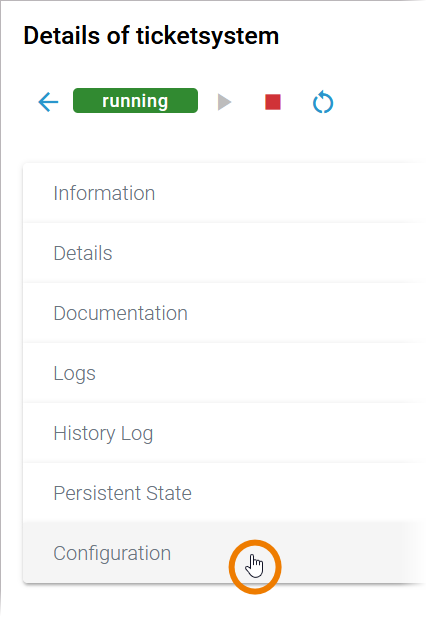
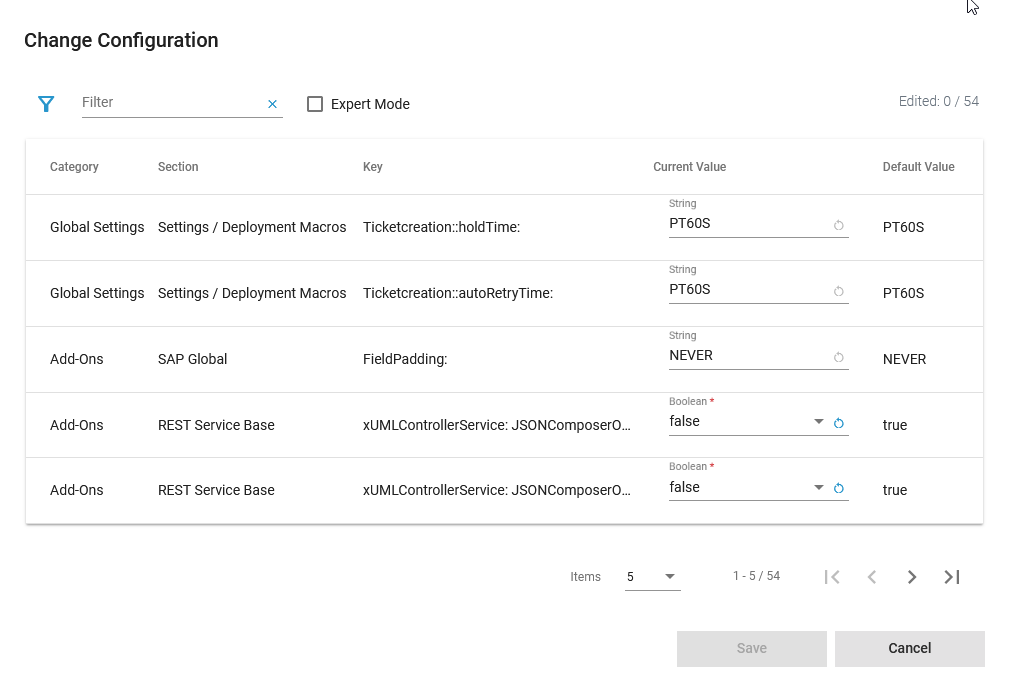
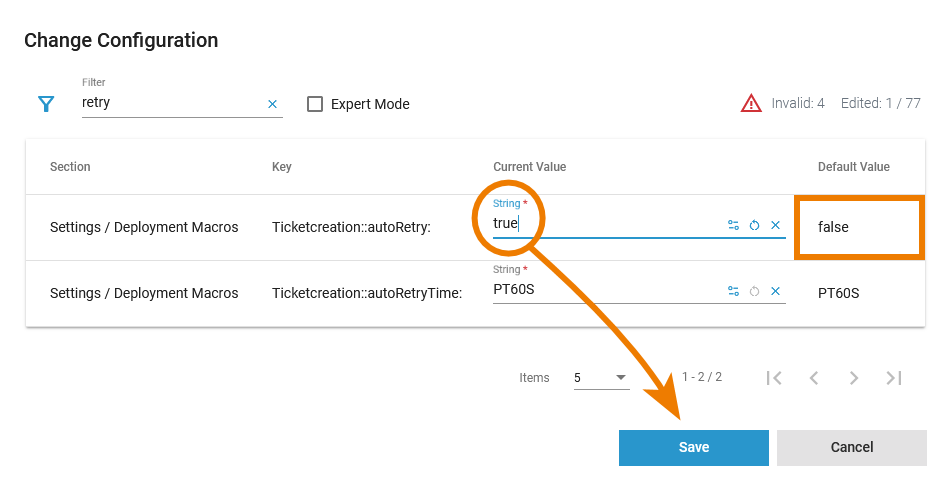
 .
.